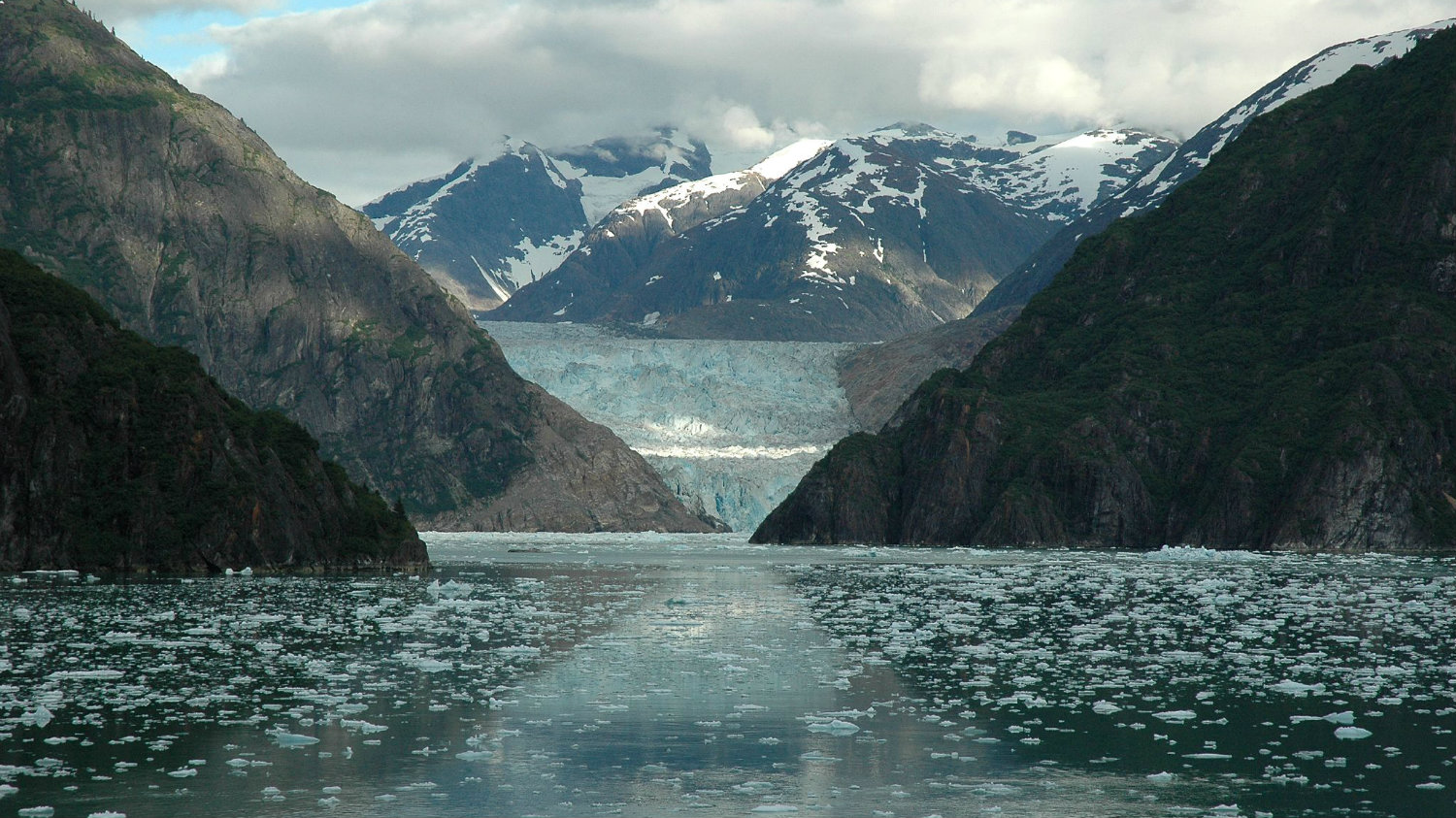Think about the best rock concert you’ve ever been to. Pretty loud, right? Well, some parts of the ocean are that loud all the time but for a somewhat less rockin’ reason: bubbles.
That’s right. Bubbles from melting glacier ice are basically the Rolling Stones of the sea, according to a new study published this week in the journal Geophysical Research Letters. When snow condenses into glacier ice, it forms tiny, spherical air pockets. As the glacier ice then melts, those air pockets pinch off into bubbles, and that pinching off process is what’s causing all the racket. This study looked specifically at glaciers in fjords — long, thin inlets of the ocean surrounded by high cliffs — and found that the average noise there registered at a whopping 120 decibels (think chainsaws), and the frequency ranged between 1000 and 3000 hertz (think the top half of the piano register).
Erin Pettit, a geophysicist from the University of Alaska Fairbanks led the study. She and her colleagues used underwater microphones to capture the noises coming from a fjord called Icy Bay in Alaska and two others — one in Alaska and one in Antarctica. In an interview with the Associated Press, Pettit said she didn’t expect to find so much ambient noise coming from the ice:
“The glacier fjord sound on a typical day for Icy Bay, (Alaska) is louder than being in the water beneath a torrential downpour, which really surprised me.”
After taking measurements in the field, the researchers conducted laboratory experiments to makes sense of their observations. Here’s a video of melting ice from those experiments:
The researchers point out that acoustic monitoring could be a way to remotely monitor glacier melt, now that they know what glacier melting sounds like. They also warn that as glacier ice retreats and fjords quiet down, local marine ecosystems could feel the ripple effects. Whales hunt by listening for their prey, so noisy glaciers might drive them to quieter waters. Seals, on the other hand, might like the noise because it hides them from the whales. Indeed, harbor seal populations have declined near retreating glaciers.
In other words, whales are basically the grumpy old codgers telling everyone to keep the music down, while harbor seals are the rowdy youths using the noise to confuse and evade their elders. Is it just me, or are these the makings of a great cartoon? Anyone have any good bubble-themed band names?



